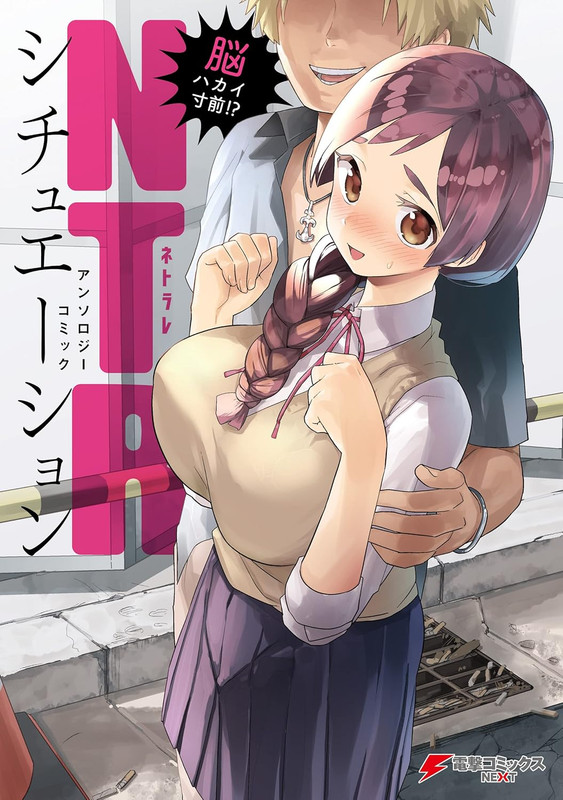"NTR": Stolen Love Story in Japanese Otaku Culture
The Japanese term "NTR" (often romanized as such, but sometimes seen as "Netorare") holds a significant, albeit controversial, place within Japanese otaku culture. While a straightforward translation might seem insufficient to capture its full nuance, understanding its context is crucial for navigating this fascinating, and sometimes unsettling, aspect of Japanese popular culture. This blog post will delve into the meaning, origins, and cultural implications of "NTR," offering a detailed exploration for English-speaking fans of Japanese media.
Origins and Etymology:
The term "NTR" is an abbreviation derived from the Japanese phrase "Netsujō no Toraware" (熱情の奪われ), literally translating to "the stealing of passion" or "having one's affections stolen." This concise acronym perfectly encapsulates the core theme: the depiction of a romantic relationship being disrupted by a third party. While the original phrase might suggest a broader range of scenarios, the otaku community has largely narrowed its focus to a specific trope.

The Trope in Media:
In the context of anime, manga, and visual novels, "NTR" typically refers to a narrative where a character's partner is seduced or taken by another person. This often involves betrayal, infidelity, and the intense emotional turmoil experienced by the betrayed character. The focus frequently lies on the emotional impact on the protagonist, exploring themes of jealousy, heartbreak, and the complex dynamics of love and loss. The power dynamic inherent in the scenario, and the often explicit portrayal of the act of betrayal, contributes to its intense and sometimes shocking nature.
Beyond the Literal:
It's crucial to understand that "NTR" is not merely about infidelity; it's a highly stylized and often symbolic representation of power dynamics, loss of control, and the exploration of complex emotions. The scenarios depicted often push boundaries, playing with themes of humiliation, vulnerability, and the intense emotional reactions provoked by betrayal. This intensity, combined with the often detailed and explicit artistic representations, contributes to the genre's niche appeal.
Variations and Subgenres:
The "NTR" trope encompasses a broad spectrum of scenarios. Some variations focus on the emotional trauma of the betrayed character, while others explore the motivations and perspectives of the third party. The level of explicitness also varies considerably, ranging from subtle hints of infidelity to graphically detailed depictions. This diversity contributes to the continued relevance and evolving nature of the trope within the otaku community.
Cultural Significance and Appeal:
The enduring appeal of "NTR" within Japanese otaku culture can be attributed to several factors. The trope often taps into deeply ingrained anxieties surrounding relationships, betrayal, and the fear of losing control. The heightened emotional intensity and the often taboo nature of the subject matter create a sense of forbidden fascination. Furthermore, the artistic expression involved in depicting these scenarios can be highly sophisticated and emotionally resonant, transcending the potentially shocking subject matter.
Criticisms and Controversies:
Despite its popularity, "NTR" remains a controversial topic. Some critics argue that it normalizes or glorifies infidelity and harmful relationship dynamics. Others find the explicit nature of some depictions objectionable. These critiques highlight the importance of approaching this genre with critical awareness and understanding its potential to be misinterpreted or misused.
Beyond the Negative:
However, dismissing "NTR" as solely exploitative or harmful would be an oversimplification. Many works utilizing this trope explore complex themes of emotional vulnerability, the complexities of human relationships, and the psychological impact of betrayal with nuance and sensitivity. The artistic merit and emotional depth of some "NTR" content should not be overlooked.
Engagement and Interpretation:
For those unfamiliar with Japanese otaku culture, encountering "NTR" can be jarring. It's vital to approach the content with a critical lens, considering the cultural context and artistic intentions. The interpretations of "NTR" vary widely, and understanding the nuances is essential to avoiding misinterpretations and appreciating the complexities of the trope.
Comparing to Western Tropes:
While Western media also explores themes of infidelity and betrayal, the stylistic and thematic differences between "NTR" and analogous Western tropes are significant. The emphasis on emotional intensity, the specific power dynamics, and the often explicit nature of the depictions set "NTR" apart. Understanding these differences is crucial for avoiding inaccurate comparisons and appreciating the unique characteristics of this Japanese cultural phenomenon.
The Future of NTR:
The "NTR" trope continues to evolve within the Japanese otaku community. New variations and subgenres emerge, pushing creative boundaries and exploring new facets of this complex and controversial theme. Its continued presence within popular culture suggests its enduring relevance and capacity to resonate with audiences.
Conclusion:
"NTR" is a complex and multifaceted trope within Japanese otaku culture. Understanding its origins, variations, and cultural significance is crucial for navigating its complexities and appreciating its artistic merit and potential for emotional resonance. While it undeniably contains controversial elements, dismissing it entirely would be ignoring its nuanced exploration of human relationships and the emotional turmoil of betrayal. Approaching "NTR" with critical awareness and cultural sensitivity allows for a more complete and insightful understanding of its place within Japanese media.